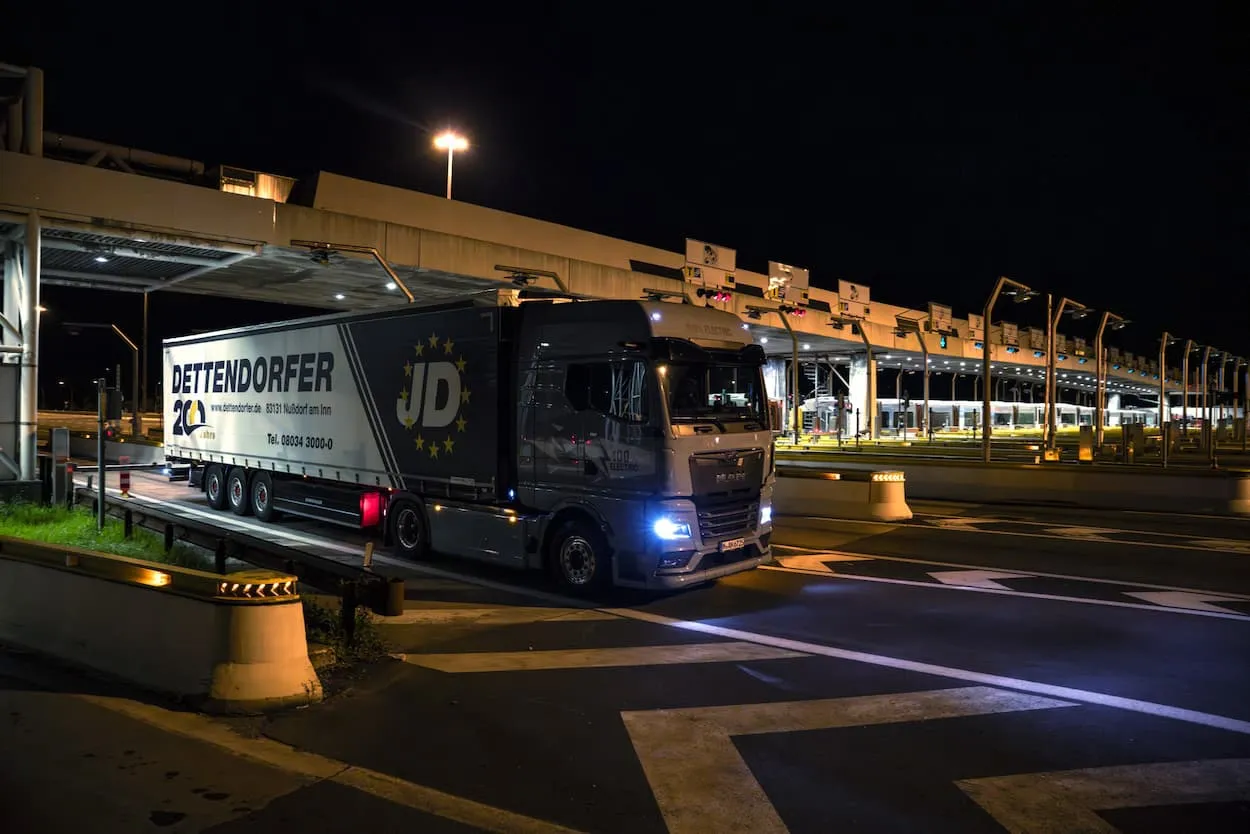As the completion of the Brenner Base Tunnel faces further delays and construction works on the Lueg Bridge restrict capacity, companies such as Dettendorfer and Gruber Logistics are establishing new concepts for freight transport over the Brenner Pass. One such solution is the targeted use of e-trucks during night-time hours.
MAN and Dettendorfer trial e-trucks in pilot project
Since July, MAN Truck & Bus and the logistics company Dettendorfer have been testing the use of fully electric trucks in night-time traffic between Raubling and Bolzano as part of a four-week pilot project. Thanks to their zero emissions, electric trucks are exempt from night-time driving bans on the Inntal motorway (A12) in Tyrol and can therefore help ease daytime traffic volumes.
According to manufacturer MAN, the new series-production e-truck – with a range of up to 800 kilometres – is designed for reliable use in both summer and winter conditions. Production has been underway in Munich since June 2025.
Economic advantages through toll reductions and energy recovery
MAN states that each electric truck with an annual mileage of around 110,000 kilometres can achieve toll savings of over €60,000 on German motorways. In Austria, tolls are up to 75% lower at night. In Italy, however, the difference between diesel and electric trucks remains marginal for now.
Over a typical three-year service period, MAN estimates a total cost of ownership (TCO) advantage of around 15% compared to conventional vehicles. This is driven by toll exemptions, lower energy and maintenance costs, and tax incentives. According to Dettendorfer Energy, electricity prices are approximately €0.41/kWh in Raubling and €0.38/kWh in Bolzano. Up to 40% of energy can be recovered on the mountainous route thanks to regenerative braking.
CO₂ savings and noise reduction during operation
MAN puts the annual CO₂ savings per electric truck at around 95 tonnes. With 300 vehicles in daily operation, this could amount to as much as 28,000 tonnes per year – roughly the emissions of a small town. In addition, the manufacturer claims that the noise level during acceleration is around 12 decibels lower than that of a diesel truck.
Infrastructure is key: New charging points along the route
Charging infrastructure is crucial for the economic and operational success of such projects. Dettendorfer operates a fast-charging hub in Raubling in cooperation with Energie Südbayern. Another charging point is in place in Bolzano. In addition, Milence has opened a truck charging park on the A22 south of Verona, equipped with four high-performance charging stations (up to 400 kW). In the long term, the deployment of megawatt charging systems is planned.











